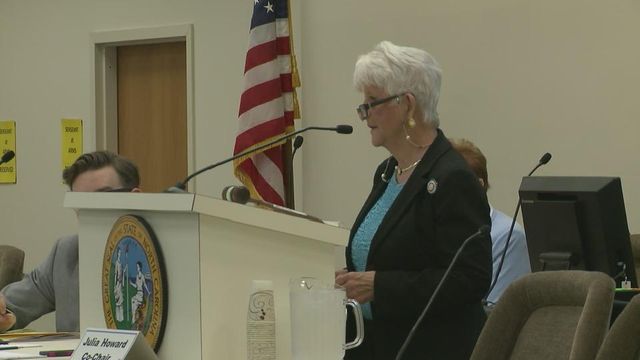Good government bills move ahead
A key oversight panel voted Monday in favor of two proposals recommended in the wake of scandals at DHHS and the Rural Center.
Posted — UpdatedRevolving-door ban
One bill would bar state employees from going to work for a business for six months after awarding or managing a contract with that business or making regulatory or licensing decisions that affect it. Current law doesn't impose any such waiting period.
The proposal would require the waiting period for any state worker "personally and substantially involved" in contract management or regulatory decisions. It would also apply more broadly to agency heads, constitutional officers, chief procurement officers and members of commissions or boards with regulatory or licensing authority over the prospective employer.
Each state agency would be required to make a list of positions subject to the new rule and would be required to remind the employee of the prohibition on hiring, promotion, transfer or departure.
Businesses, too, could be liable if they "solicit or conspire with" a subject state employee to violate the waiting period. A violation would be a misdemeanor with a fine of $1,000 to $5,000.
The bill was prompted by Paul Guthery, a former IT manager at the state Department of Health and Human Services who was the "point person" for overseeing readiness testing of the state's new Medicaid billing system, NCTracks. The testing was conducted by contractor Computer Sciences Corp.
Interest on state grants
The second bill would classify interest earned by non-state entities on state grant funds as "state funds" and, therefore, subject to the same rules as other grant funds. Current state law doesn't specify a beneficiary for interest accrued on state grants.
The proposal requires any nonprofit receiving more than $100,000 from the state to keep the money in an interest-bearing account. The nonprofit could keep $250 of the earnings to pay for banking costs. The rest would have to be either used for the same purpose as the principal or returned to the state, unless the grant agreement specifies otherwise.
The bill would also require the Office of State Budget and Management to draw up accounting and reporting rules for grantees. OSBM would also be required to seek the return of any state grant funds left unspent after two years unless the grant agreement specifies another time frame for the use of the funds.
That proposal came out of a scathing 2013 audit of the North Carolina Rural Economic Development Center, a large nonprofit using federal and state money for economic development and infrastructure grants in 85 out of 100 North Carolina counties.
The center has since been restructured within the state Department of Commerce, but legislative attorney Hal Pell said 90 percent of state grant funds go to just 20 percent of nonprofit grantees, all of which would be covered by the $100,000 requirement.
Both proposals are eligible for consideration this year. The 2014 legislative session starts May 14.
Related Topics
• Credits
Copyright 2024 by Capitol Broadcasting Company. All rights reserved. This material may not be published, broadcast, rewritten or redistributed.






